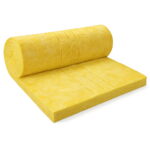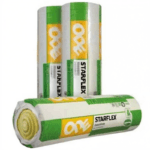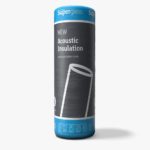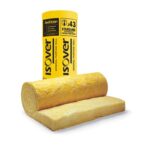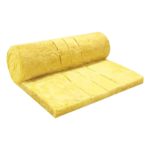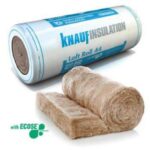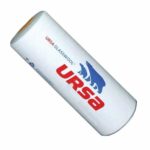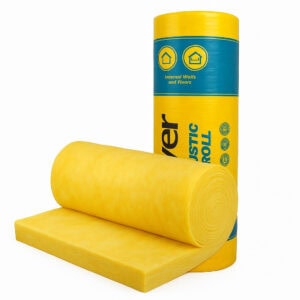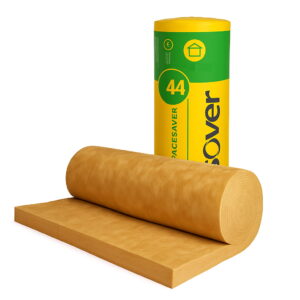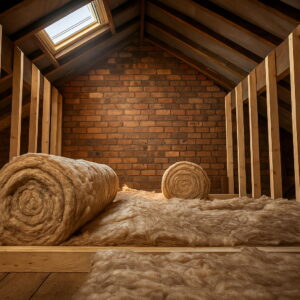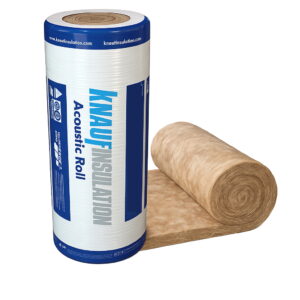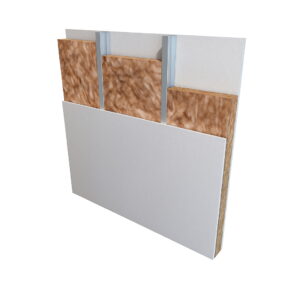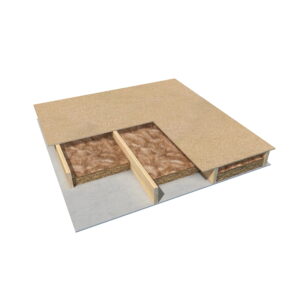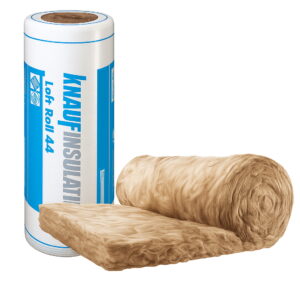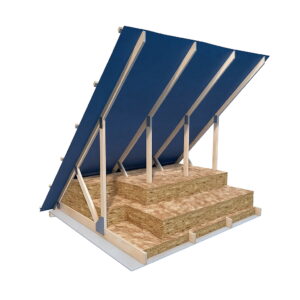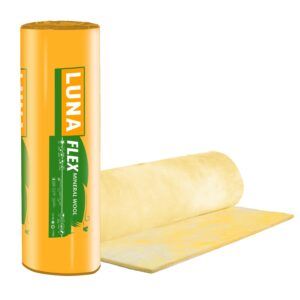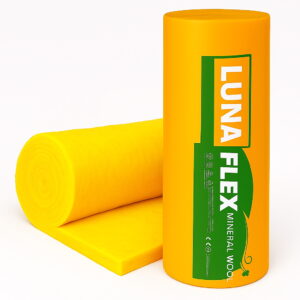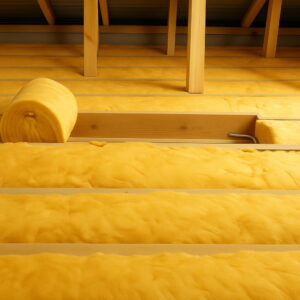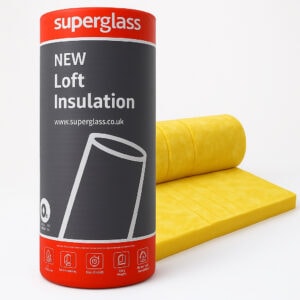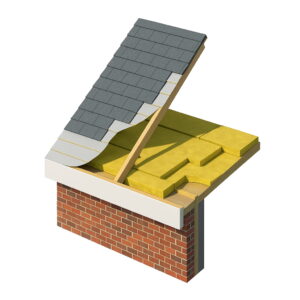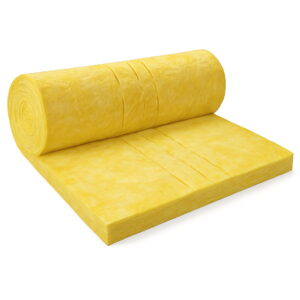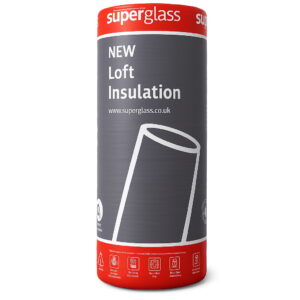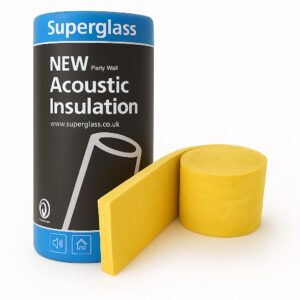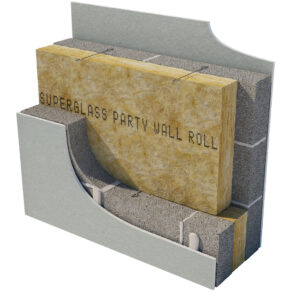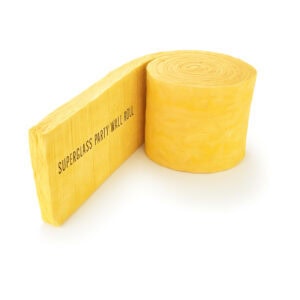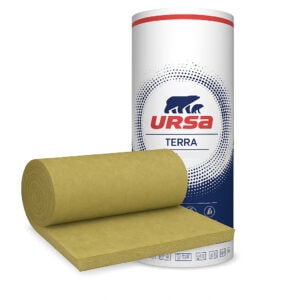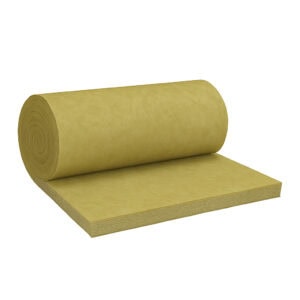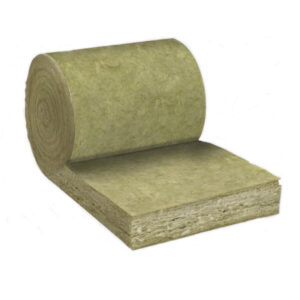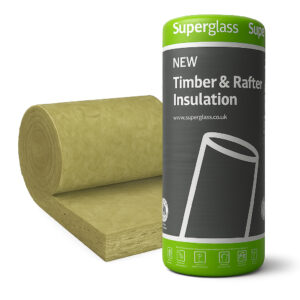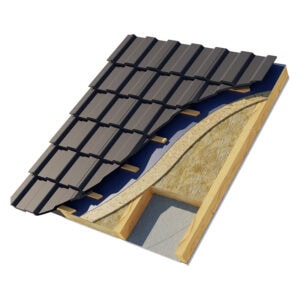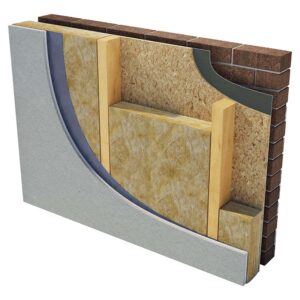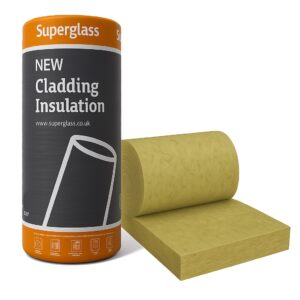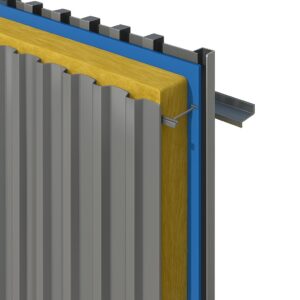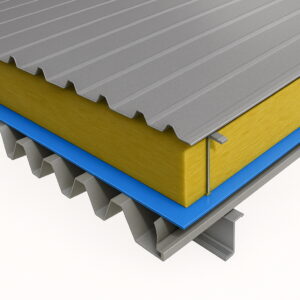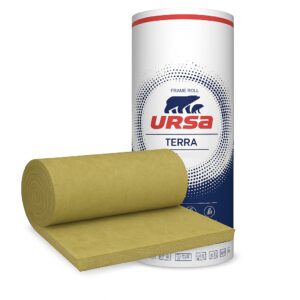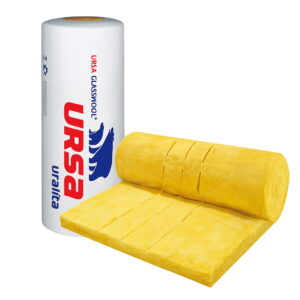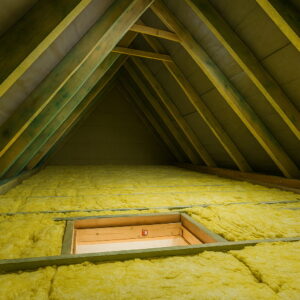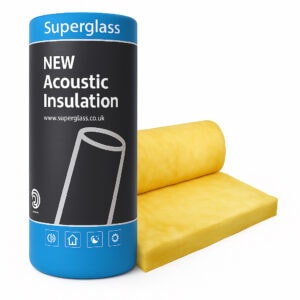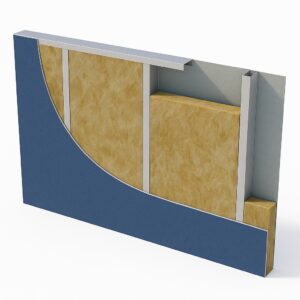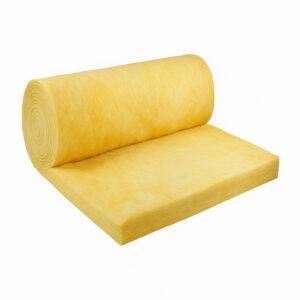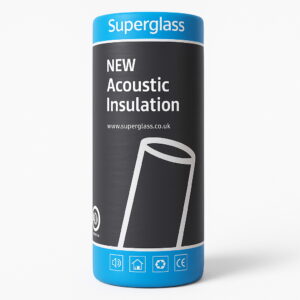Insulation Roll
Insulation roll is a type of building material commonly used to insulate structures. The primary goals of these rolls are temperature regulation and increased energy effectiveness.
What are Insulation rolls manufactured from?
Foil insulation rolls and natural fibres like fibreglass, mineral wool, and glass mineral wool can be used to make insulation rolls. Every material has distinct qualities and advantages of its own.
Fibreglass – a lightweight and versatile composite material, is made of tiny glass fibres enmeshed in a polymer matrix. It is recognised for its exceptional durability, heat and corrosion resistance.
Mineral Wool – is a substance that resists fire, absorbs sound, and is formed from spun mineral fibres, usually basalt or slag. It is frequently utilised in construction to increase energy efficiency, provide quieter, safer interior areas, and give superior thermal performance.
Foil insulation – A form of insulating material with a coating of foil or metallic film on one or both sides is known as foil insulation roll, often referred to as reflecting foil insulation. Aluminium is frequently used to create this reflective surface, which is also sometimes coupled with foam, bubble wrap, or fibreglass. Foil insulation’s primary purpose is to form a radiant barrier that deflects heat away from the source, which may assist in controlling temperature.
Types of Insulation Rolls
Rolls of acoustic insulation are made of materials intended to suppress or absorb sound in specific areas of a building structure such as floors, walls, and ceilings.
Acoustic Insulation Rolls
Acoustic Insulation Rolls are materials that play a role in reducing sound transmission within buildings. They are typically made of mineral wool or fibreglass. They are widely used in construction to absorb and minimise the impact of waves on walls, floors and ceilings. By installing these rolls you can significantly reduce noise both from sources and between areas, within a building ultimately creating a quieter and more comfortable indoor environment. The installation process is straightforward making it easier to achieve conditions.
Loft Insulation Roll
The thermal insulation material known as loft roll insulation is frequently utilised in residential structures. It usually comes in rolls or batts and is manufactured from of materials like mineral wool or fibreglass. Loft insulation roll is installed in a building’s attic or loft space to improve energy savings, maintain a comfortable temperature in the living areas and help retain heat. Limiting heat loss through the roof does this.
URSA Insulation Roll
URSA Insulation Roll is a high-performance insulation product thanks to its exceptional thermal and acoustic insulating properties. Reduces heat loss, boosting energy effectiveness, and reduces sound transmission are all accomplished by URSA Insulation Roll.
Knauf Insulation Roll
Knauf manufactures a specific kind of thermal insulation product known as Knauf Roll insulation. Typically, mineral wool or glass wool is used to make it, both of which are top-notch insulators. The ease of handling and installation of Knauf roll insulation makes it a popular option for enhancing the energy efficiency of homes and buildings.
Superglass Insulation Roll
In order to maintain consistent indoor temperatures and save heating and cooling expenses, Superglass Insulation Roll is frequently used to insulate walls, roofs, and floors. It is a safe and environmentally friendly option for insulation projects since it is fire-resistant and has no influence on the environment.
Main Characteristics of Insulation Rolls?
Some fundamental characteristics and features of insulating rolls include the following:
- Form: These flexible rolls are available in a range of thicknesses and widths to satisfy different insulating requirements. Insulation roll installation is not very challenging. They can be spread out and fitted between wall studs, floor joists, or ceiling joists. They are widely employed in attics, crawl spaces, and framed walls to create a thermal barrier.
- R-Value: This measure of a material’s resistance to the flow of heat is used to determine how effective insulation is. The R-value of the insulation determines how well it works thermally. Different insulating materials and thicknesses have different R-values.
- Fire Resistance: Certain insulation materials are designed to be either fire-retardant or fire-resistant, adding an extra degree of security.
- Energy Efficiency: Insulation rolls help to improve energy efficiency by reducing heat transmission. In colder climates, they help keep a building’s inside warm, while in hotter ones, they help keep it cool. Sound Insulation: Some insulation materials provide sound and heat insulation advantages. Sound reduction improves the comfort of the acoustics within building structures.
- Moisture Resistance: Some varieties of insulation roll are designed to tolerate moisture, preventing the growth of mould and mildew and maintaining their insulating properties when exposed to damp conditions.
- Environmental Issues: Some insulating options are more environmentally beneficial than others. For instance, natural fibre insulation is frequently used since it is sustainable and favourable to the environment. When selecting the appropriate insulation wrap type and thickness for your application, take into account elements such as the environment, regional building requirements, and your objectives for energy efficiency. A building may become more comfortable, increase its sustainability and energy efficiency, and drastically lower its heating expenses when insulation is put properly.
Where to use Insulation Rolls?
- Interior Walls and Ceilings: Fitted in between wall studs to lessen heat transmission through the walls, enhance energy efficiency, and adjust indoor temperatures.
- Roofs and Attics: Loft insulation wrap is frequently used in attics to stop heat loss through the roof and to keep the living area below at a suitable temperature. Between the attic and the rest of the home, they also provide a thermal barrier.
- Floors: To provide insulation between several floors of a structure. Rolls occasionally be inserted between floor joists or directly beneath the flooring. This is crucial for higher floors or very cool crawl areas.
How to install Insulation Rolls?
Installing acoustic rolls, also known as sound insulation rolls, can help reduce noise transmission between rooms or spaces in a building.
Here’s a step-by-step guide on how to install acoustic rolls and the tool you may require.
- Scissors or a utility knife
- Tape measureAdhesive or a stapler (optional)
- Protective gloves and eyewear.
Start out by taking safety precautions by wearing gloves and safety eyewear when installing.
Measure and Cut: Determine the area’s width and length before you begin installing the acoustic rolls. To cut the rolls to the appropriate size, use a utility knife or scissors. To appropriately suit the area, make accurate cuts.
Placement: Gently insert the cut acoustic rolls into the walls, floor joists, or ceiling spaces, depending on your installation location. Make sure the rolls fit snugly without gaps or compression. If there’s any excess material, trim it to fit properly. The rolls can be fastened to the framing with a staple gun or insulation-specific glue. However, this step may not necessarily be required if the rolls fit snugly.
Barriers: Carefully trim the insulation to fit around any obstacles you come across, including pipes, electrical lines, and other types of impediments. Make sure to have an uninterrupted layer of insulation without any sizable gaps.
Gaps: Be aware of any potential gaps at joints, edges, and corners. To establish a suitable sound seal, plug these spaces with tiny pieces of insulation or acoustic sealant.
Cleaning: After installation, remove any leftover debris and properly dispose of any extra insulation. Wash your hands before taking off your safety gear.
Once your acoustic installation is finished, you may evaluate its performance by keeping an eye on how quiet the rooms or areas are.
Conclusion
When installing acoustic rolls, always adhere to the manufacturer’s instructions and any applicable local construction laws or requirements.
Please don’t hesitate to contact our dedicated sales team on 0203 318 7316 or by email at [email protected] for any assistance with your purchase.
Showing 1–32 of 45 results
-
100mm Isover Acoustic Partition Insulation Roll – Glass Mineral Wool 11m2
100mm Isover Acoustic Partition Insulation Roll is a glass mineral wooldesigned to reduce sound transmission between walls and floors, creating quieter and more comfortable spaces.
£45.17£54.20 Ex VATInc VAT£4.11£4.93 Per m2 Add to cart -
100mm Isover Spacesaver Insulation Loft Roll 14.13m2
100mm Isover Spacesaver Insulation Loft Roll is an efficient and easy-to-install solution for insulating loft spaces, designed to enhance energy efficiency and home comfort.
£29.87£35.84 Ex VATInc VAT£2.11£2.53 Per m2 Add to cart -
100mm Knauf Acoustic Insulation Roll – Glass Mineral Wool 12.36m2
100mm Acoustic Insulation Roll from Knauf is a Glass Mineral Wool roll, designed for use in internal wall and floor applications, to offer sound absorption and noise reduction properties.
£49.44£59.33 Ex VATInc VAT£4.00£4.80 Per m2 Add to cart -
100mm Knauf Insulation Loft Roll 44 Combi-Cut 13.89m2 Roll
Knauf Insulation Loft Roll 44 is a non-combustible glass mineral wool roll supplied in a Combi-Cut format. It is designed for use in cold lofts. Manufactured using Knauf Insulation’s unique bio-based binder, ECOSE® Technology.
£28.10£33.72 Ex VATInc VAT£2.02£2.42 Per m2 Add to cart -
100mm ODE Acoustic Roll Insulation 7.8m2 Roll
100mm ODE Insulation Acoustic Roll is designed to reduce sound transmission, making it an ideal solution for creating quieter indoor environments. Its flexible and simple-to-install design effectively absorbs sound, making it perfect for both residential and commercial spaces.
£23.38£28.06 Ex VATInc VAT£3.00£3.60 Per m2 Add to cart -
100mm ODE Insulation Loft Roll 10.83m2
100mm ODE Insulation Loft Roll is a highly effective thermal loft solution for improving home energy efficiency. Made from eco-friendly materials, it offers a simple and effective way to improve comfort while lowering energy costs.
£19.36£23.23 Ex VATInc VAT£1.79£2.15 Per m2 Add to cart -
100mm Superglass 44 Multi Loft Roll Insulation 12.12m2 Roll
Multi-Roll 44 is a lightweight, non-combustible glass mineral wool roll, designed to provide thermal insulation in lofts. This roll is typically used for insulating loft spaces and cold roofs but can also be used in a multitude of different applications.
£25.49£30.59 Ex VATInc VAT£2.10£2.52 Per m2 Add to cart -
100mm Superglass Party Wall Roll 7.85m2
Superglass Party Wall Roll is a lightweight, non-combustible glass mineral wool insulation roll. The flexible roll is cut at 3x455mm widths to fit between standard wall ties spacings and to allow easy installation and minimum on-site cutting and waste. Manufactured at a minimum density of 18kg/m3 .
£60.80£72.96 Ex VATInc VAT£7.75£9.30 Per m2 Add to cart -
100mm URSA Acoustic Partition Roll Insulation 7.20m2 Roll
100mm URSA Acoustic Roll is a lightweight, non-combustible, unfaced glass mineral wool product for use as acoustic insulation in timber or metal framed internal partition walls, timber or metal framed separating walls and timber separating floors.
£28.55£34.26 Ex VATInc VAT£3.97£4.76 Per m2 Add to cart -
100mm URSA Party Wall Roll 5.46m2
100mm URSA Party Wall Roll is a high-density insulation that helps reduce noise transfer between connecting walls, creating quieter spaces in both homes and commercial buildings.
£52.38£62.86 Ex VATInc VAT£9.59£11.51 Per m2 Add to cart -
140mm Superglass 32 Timber & Rafter Roll Insulation 3.19m2 Roll
140mm Superglass 32 Timber & Rafter Roll covers 3.19m2, providing snug and energy-saving insulation between timbers and rafters
£49.75£59.70 Ex VATInc VAT£15.60£18.72 Per m2 Add to cart -
140mm Superglass Cladding Mat 40 Thermal & Acoustic Roll 8.40m2
140mm Superglass Cladding Mat 40 is a resilient, medium dense and non-combustible glass mineral wool insulation roll with exceptional durability and high tear strength. The roll is supplied 1200mm wide to allow quick installation and minimum on-site cutting and waste.
£40.00£48.00 Ex VATInc VAT£4.76£5.71 Per m2 Add to cart -
140mm URSA 35 Timber Frame Roll 4.93m2
140mm URSA Timber Frame Roll 35 is a lightweight, non-combustible, glass mineral wool product. It is suitable for use in both timber and metal framed walls.
£41.62£49.94 Ex VATInc VAT£8.44£10.13 Per m2 Add to cart -
150mm Isover Spacesaver Insulation Loft Roll 9.34m2
150mm Isover Spacesaver Insulation Loft Roll is an efficient and easy-to-install solution for insulating loft spaces, designed to enhance energy efficiency and home comfort.
£30.01£36.01 Ex VATInc VAT£3.21£3.85 Per m2 Add to cart -
150mm Knauf Insulation Loft Roll 44 Combi-Cut 9.18m2 Roll
Knauf Insulation Loft Roll 44 is a non-combustible glass mineral wool roll supplied in a Combi-Cut format. It is designed for use in cold lofts. Manufactured using Knauf Insulation’s unique bio-based binder, ECOSE® Technology.
£28.40£34.08 Ex VATInc VAT£3.09£3.71 Per m2 Add to cart -
150mm ODE Insulation Loft Roll 7.98m2
150mm ODE Insulation Loft Roll is a highly effective thermal loft solution for improving home energy efficiency. Made from eco-friendly materials, it offers a simple and effective way to improve comfort while lowering energy costs.
£21.96£26.35 Ex VATInc VAT£2.75£3.30 Per m2 Add to cart -
150mm Superglass 44 Multi Loft Roll Insulation 7.71m2 Roll
Multi-Roll 44 is a lightweight, non-combustible glass mineral wool roll, designed to provide thermal insulation in lofts. This roll is typically used for insulating loft spaces and cold roofs but can also be used in a multitude of different applications.
£24.55£29.46 Ex VATInc VAT£3.18£3.82 Per m2 Add to cart -
150mm URSA Loft Roll Insulation 8.55m2 Roll
150mm URSA 10 DIVERSO Loft Rolls are used as loft insulation in cold pitched roofs. It is suitable for both new build and refurbishment.
£28.55£34.26 Ex VATInc VAT£3.34£4.01 Per m2 Add to cart -
200mm Isover Spacesaver Insulation Loft Roll 6.03m2
200mm Isover Spacesaver Insulation Loft Roll is an efficient and easy-to-install solution for insulating loft spaces, designed to enhance energy efficiency and home comfort.
£26.04£31.25 Ex VATInc VAT£4.32£5.18 Per m2 Add to cart -
200mm Knauf Insulation Loft Roll 44 Combi-Cut 6.84m2 Roll
Knauf Insulation Loft Roll 44 is a non-combustible glass mineral wool roll supplied in a Combi-Cut format. It is designed for use in cold lofts. Manufactured using Knauf Insulation’s unique bio-based binder, ECOSE® Technology.
£28.50£34.20 Ex VATInc VAT£4.17£5.00 Per m2 Add to cart -
200mm ODE Insulation Loft Roll 6.84m2
200mm ODE Insulation Loft Roll is a highly effective thermal loft solution for improving home energy efficiency. Made from eco-friendly materials, it offers a simple and effective way to improve comfort while lowering energy costs.
£22.85£27.42 Ex VATInc VAT Add to cart -
200mm Superglass 44 Multi Loft Roll Insulation 5.63m2 Roll
Multi-Roll 44 is a lightweight, non-combustible glass mineral wool roll, designed to provide thermal insulation in lofts. This roll is typically used for insulating loft spaces and cold roofs but can also be used in a multitude of different applications.
£24.06£28.87 Ex VATInc VAT£4.27£5.12 Per m2 Add to cart -
200mm URSA Loft Roll Insulation 6.27m2 Roll
200mm URSA 10 DIVERSO Loft Rolls are used as loft insulation in cold pitched roofs. It is suitable for both new build and refurbishment.
£28.55£34.26 Ex VATInc VAT£4.55£5.46 Per m2 Add to cart -
25mm Isover Acoustic Partition Insulation Roll – Glass Mineral Wool 24m2
25mm Isover Acoustic Partition Insulation Roll is a glass mineral wooldesigned to reduce sound transmission between walls and floors, creating quieter and more comfortable spaces.
£37.64£45.17 Ex VATInc VAT£1.57£1.88 Per m2 Add to cart -
25mm Knauf Acoustic Insulation Roll – Glass Mineral Wool 26.64m2
25mm Acoustic Insulation Roll from Knauf is a Glass Mineral Wool roll, designed for use in internal wall and floor applications, to offer sound absorption and noise reduction properties.
£39.69£47.63 Ex VATInc VAT£1.49£1.79 Per m2 Add to cart -
25mm ODE Acoustic Roll Insulation 24m2 Roll
25mm ODE Insulation Acoustic Roll is designed to reduce sound transmission, making it an ideal solution for creating quieter indoor environments. Its flexible and simple-to-install design effectively absorbs sound, making it perfect for both residential and commercial spaces.
£32.75£39.30 Ex VATInc VAT£1.36£1.63 Per m2 Add to cart -
25mm Superglass Acoustic Partition Roll Insulation 27.00m2 Roll
25mm Superglass Acoustic Partition Roll (APR) is a lightweight, non-combustible glass mineral wool insulation roll. It is suitable for the following applications: internal walls and floors, timber and metal stud partitions, drylining systems and separating walls and floors. Manufactured at a minimum density of 10kg/m³.
£43.02£51.62 Ex VATInc VAT£1.59£1.91 Per m2 Add to cart -
25mm URSA Acoustic Partition Roll Insulation 24m2 Roll
25mm URSA Acoustic Roll is a lightweight, non-combustible, unfaced glass mineral wool product for use as acoustic insulation in timber or metal framed internal partition walls, timber or metal framed separating walls and timber separating floors.
£39.48£47.38 Ex VATInc VAT£1.65£1.98 Per m2 Add to cart -
50mm Isover Acoustic Partition Insulation Roll – Glass Mineral Wool 15.60m2
50mm Isover Acoustic Partition Insulation Roll is a glass mineral wooldesigned to reduce sound transmission between walls and floors, creating quieter and more comfortable spaces.
£39.35£47.22 Ex VATInc VAT£2.52£3.02 Per m2 Add to cart -
50mm Knauf Acoustic Insulation Roll – Glass Mineral Wool 16.2m2
50mm Acoustic Insulation Roll from Knauf is a Glass Mineral Wool roll, designed for use in internal wall and floor applications, to offer sound absorption and noise reduction properties.
£37.68£45.22 Ex VATInc VAT£2.33£2.80 Per m2 Add to cart -
50mm ODE Acoustic Roll Insulation 12m2 Roll
50mm ODE Insulation Acoustic Roll is designed to reduce sound transmission, making it an ideal solution for creating quieter indoor environments. Its flexible and simple-to-install design effectively absorbs sound, making it perfect for both residential and commercial spaces.
£27.71£33.25 Ex VATInc VAT£2.31£2.77 Per m2 Add to cart -
50mm Superglass Acoustic Partition Roll Insulation 15.60m2 Roll
50mm Superglass Acoustic Partition Roll (APR) is a lightweight, non-combustible glass mineral wool insulation roll. It is suitable for the following applications: internal walls and floors, timber and metal stud partitions, drylining systems and separating walls and floors. Manufactured at a minimum density of 10kg/m³.
£40.35£48.42 Ex VATInc VAT£2.59£3.11 Per m2 Add to cart
